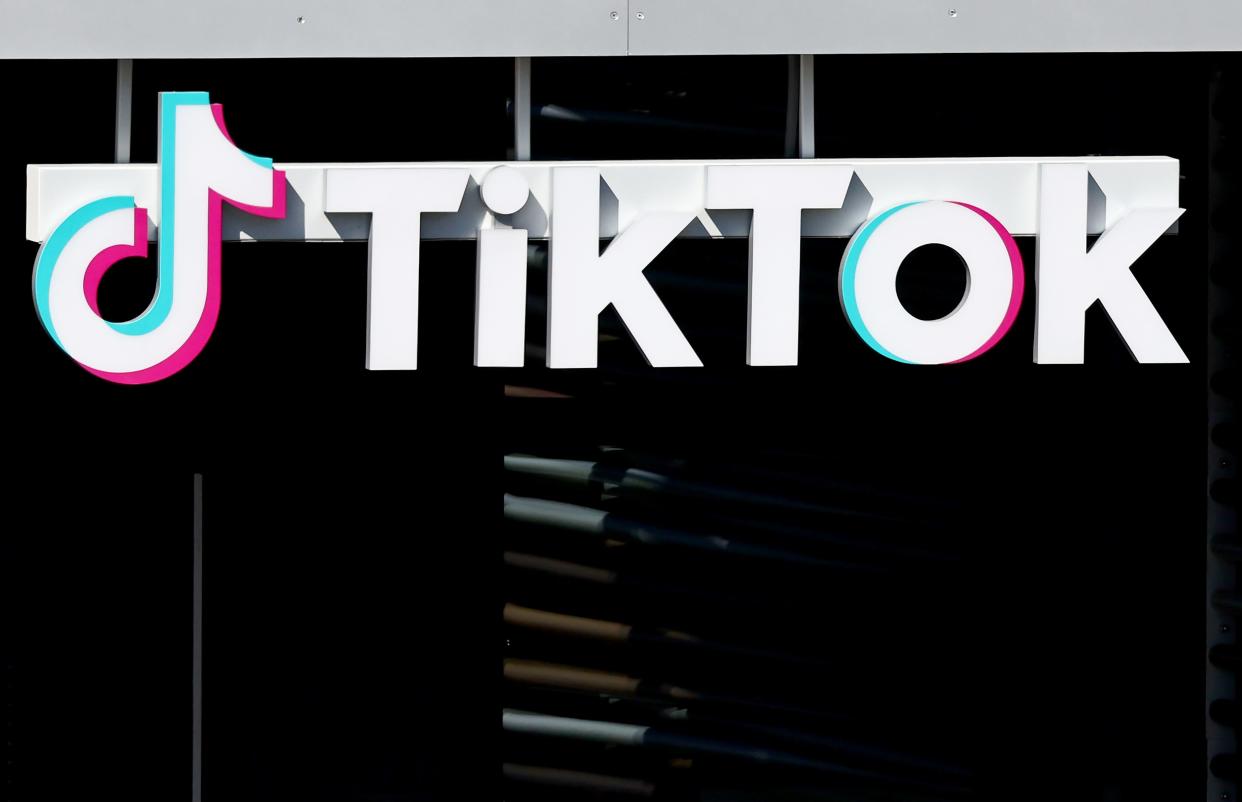A 'perfect tool' to increase division: Augusta University professor talks TikTok ban

- Oops!Something went wrong.Please try again later.
- Oops!Something went wrong.Please try again later.
An Augusta University political science professor said national politicians are justified in their concerns over TikTok and he understands the federal government's recent steps in banning the China-based app.
TikTok, which is owned by ByteDance, is one of the most popular social media sites in the world. In the United States, more than 170 million people and businesses use the app on a regular basis, according to national reporting.
Recently, the U.S. House of Representatives passed a bipartisan bill in support of banning the app unless it is sold. The decision now rests with congress.
Lance Hunter, associate professor of political science in Pamplin College of Arts, Humanities and Social Sciences at Augusta University, said the concern about China taking advantage of user information is justified considering their government's recent history.

"Even if it’s a privately-owned enterprise, China can still control it," Hunter said. "They can still manipulate it to some degree as if it was a state-owned enterprise."
He explained that because the majority of TikTok investors are Chinese entities, it is considered a Chinese-owned company.
"At any point, China can say, 'TikTok, send all of your data over to us,' and they might have done this to some degree already," Hunter said. "If the U.S. told Google, Meta or X, 'You have to turn your data over to us,' they can refuse to do that. TikTok can't refuse to do that under Chinese law, even though they are a private company.
"The notion would be, if it's no longer a Chinese company, they wouldn't be forced by Chinese law to turn that data over if they were asked."
The secret sauce of TikTok algorithms
Hunter’s research, which stemmed from a larger project, focuses on how informational warfare influences politics worldwide. He said the algorithm TikTok uses can play a major role in informational warfare by using persuasion through data gathering, which can target individual TikTok users based on their viewing habits.
Hunter added the TikTok algorithm is more advanced than some other social media platforms and more effective in knowing what people like and why they like it.
"ByteDance may be very hesitant to [sell], because the algorithm is so highly valued," he said. "A lot of people refer to it informally as their their 'secret sauce.' ByteDance would have to sell the rights to the algorithm and a lot of people are predicting that if the ban does take place, ByteDance will not sell and people will use other platforms."
More: North Augusta realtor goes viral on TikTok, amasses more than a million views on single video
Recognizing posts from artificial intelligence
Another concern is AI-generated posts and bots.
"Artificial Intelligence is a type of computer technology that can be used to carry out human-type activities, even though these activities may be not carried out to the same degree and skill that a person could have," Hunter said. "When we're thinking about bots, what we're referring to is fake accounts that are intended to impersonate actual individuals. If someone makes a post that's critical or supportive of a politician, there could be bots liking and commenting the posts, but it's not actually a real person. It's an automated account meant to give the impression that a lot of people are supporting this certain position to try to manipulate opinion."
With so many AI-generated posts, he said it can be difficult for people to decipher what is legitimate and what isn’t.
"One thing the average person can do is be very wary of what you’re seeing and ask yourself, 'Does this seem legitimate?'" Hunter said. "If everyone is saying the exact same thing, that’s a tell sometimes. Also, where does this information originate from and what are the timestamps on the posts? Look at the individual who made the post. Who are these people and who is following them? You may be able to see if they are legitimate accounts."
More: North Augusta's Boling brothers stunt videos go viral on Instagram, amass millions of views
TikTok and election year politics
The concern surrounding TikTok is coming during a U.S. election year, adding higher stakes to the conversation.
"There is empirical evidence that China has used TikTok before to try to influence elections to some degree," Hunter said. "One example is the 2022 midterm elections, in which some candidates from both parties were targeted by TikTok accounts that were controlled by a propaganda agency operating within the Chinese government. ... So there was concern that this might happen again in the upcoming 2024 elections."
Even though [China and Russia] want to influence elections, Hunter said a more predominant goal for them is to increase division and increase polarization within the U.S.
"[Social media] is a great way to do that," he said. "Even if you have a temporary reaction, you’ve increased that division, which could have longer-term effects. ... We use social media. It's on everyone's phones. So it's really a perfect tool to try to manipulate individuals and can be used for bad purposes, at times."
This article originally appeared on Augusta Chronicle: Augusta University professor discusses TikTok ban

